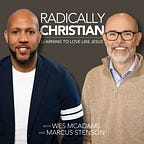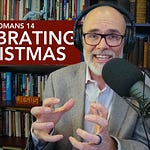Many people have asked, “What is the best translation of the Bible?” Some wonder if there are unreliable versions of the Bible that should be avoided. There are also questions swirling around about whether or not modern translations remove verses from the Bible. This episode of The Bible Study Podcast explores how translations work and how to be a better Bible student by understanding translation philosophy.
Wes McAdams and guest Kevin Burr, a Greek and New Testament professor at Harding University, discuss the differences between word-for-word and thought-for-thought translations. They emphasize that no single translation is "the best," but rather that each has strengths and weaknesses. They also explain why some translations exclude certain verses based on older, more reliable manuscripts. The conversation highlights how language changes over time, making updated translations necessary for clarity and accuracy.
Kevin Burr teaches Greek and New Testament at Harding University and previously served as a discipleship minister at King’s Crossing Church of Christ in Corpus Christi, Texas. He has nearly a decade of congregational ministry experience and now equips future ministers in biblical studies.
Resources Mentioned:
Logos Bible Study Software (www.logos.com/radicallychristian)
From the KJV to the NIV by Jack P. Lewis
Seven Things I Wish Christians Knew About the Bible by Michael Bird












